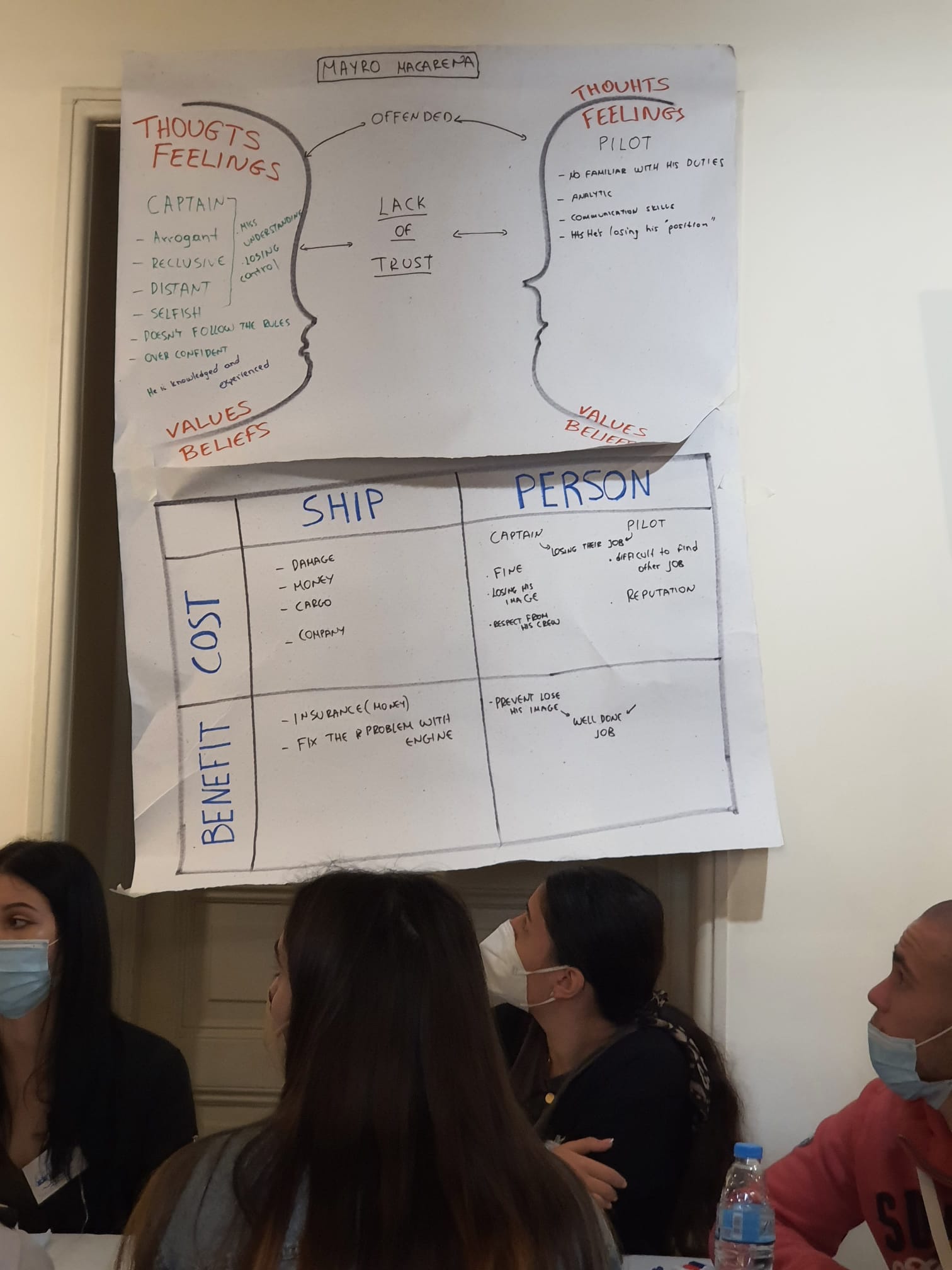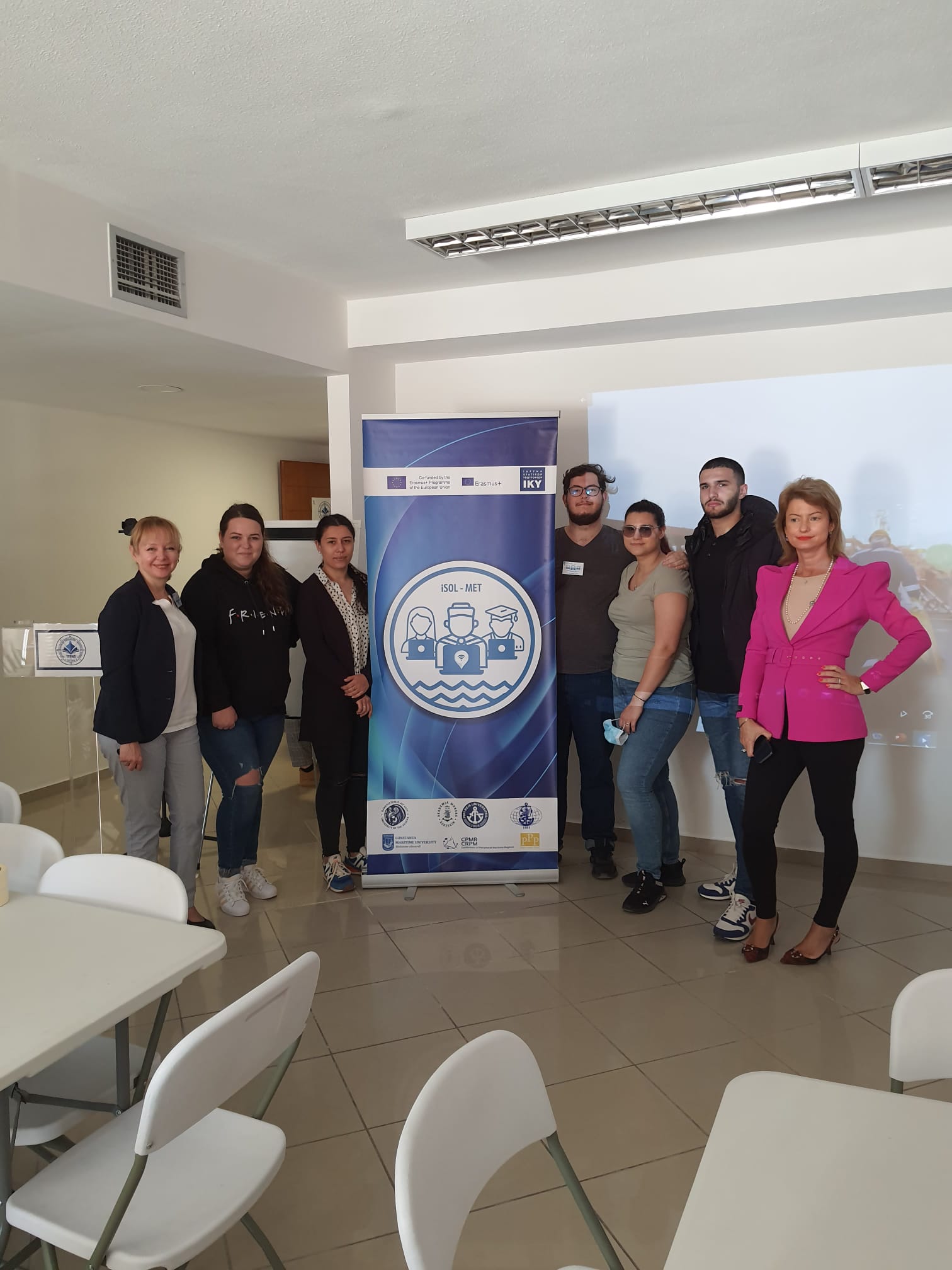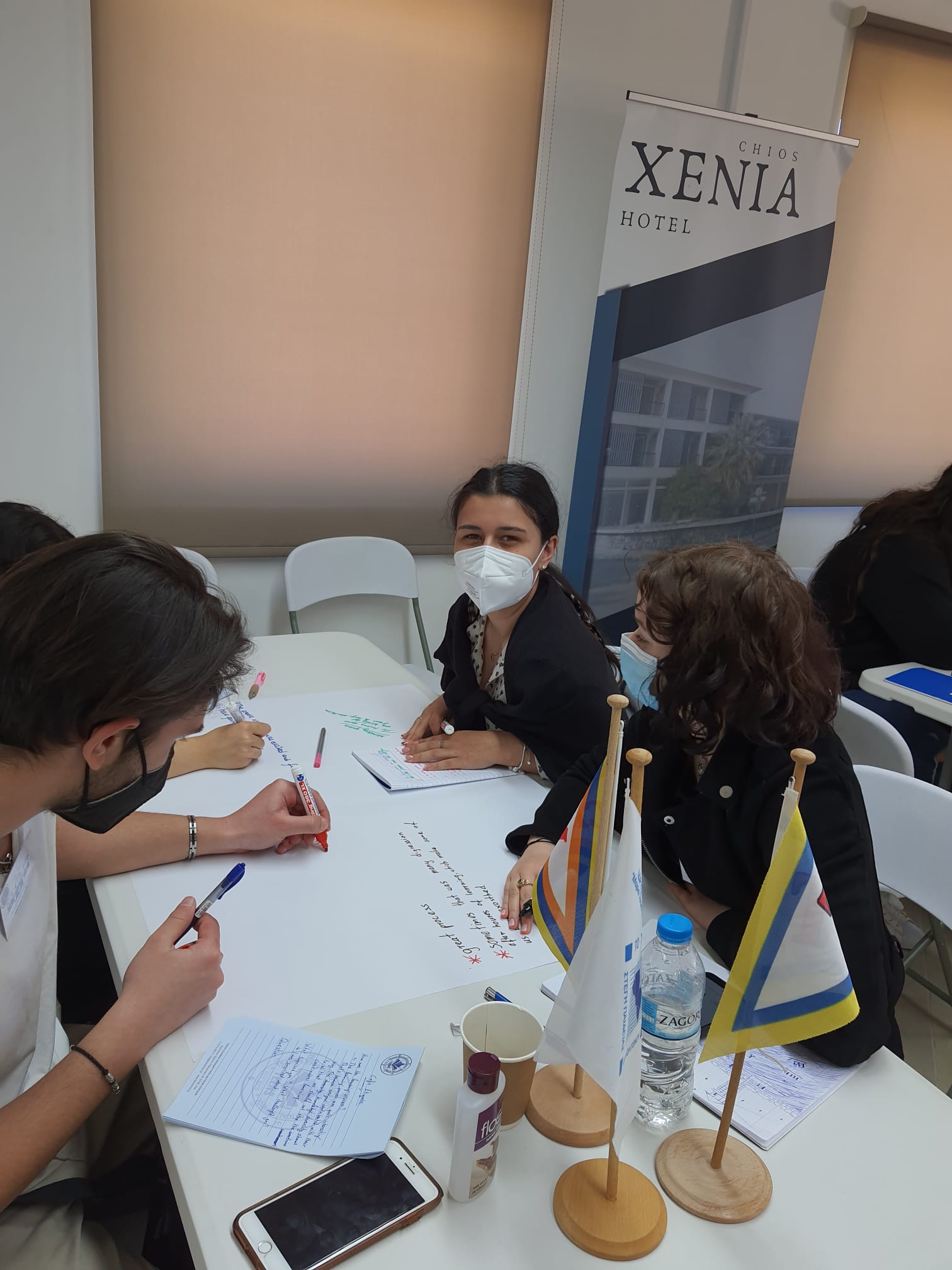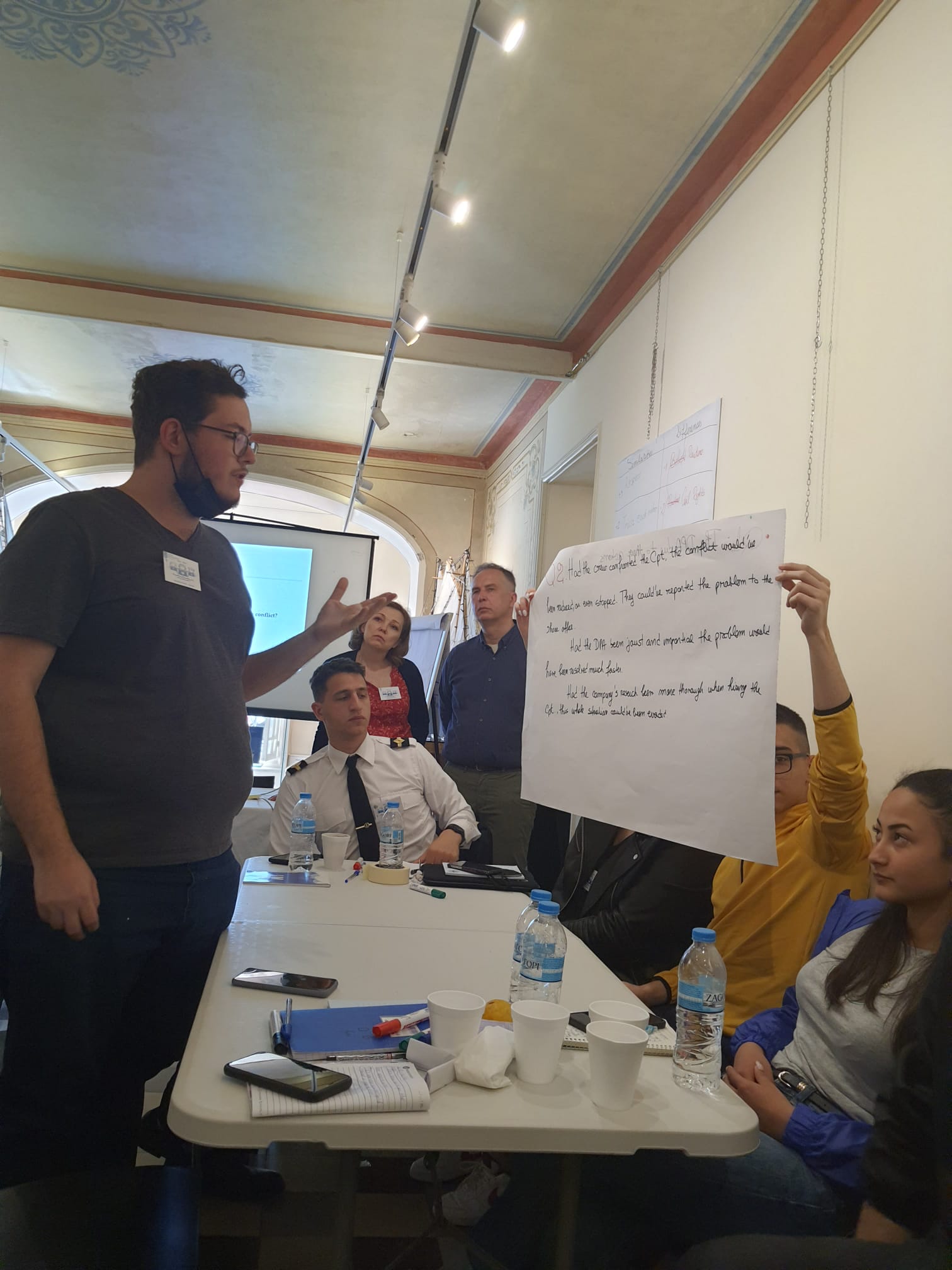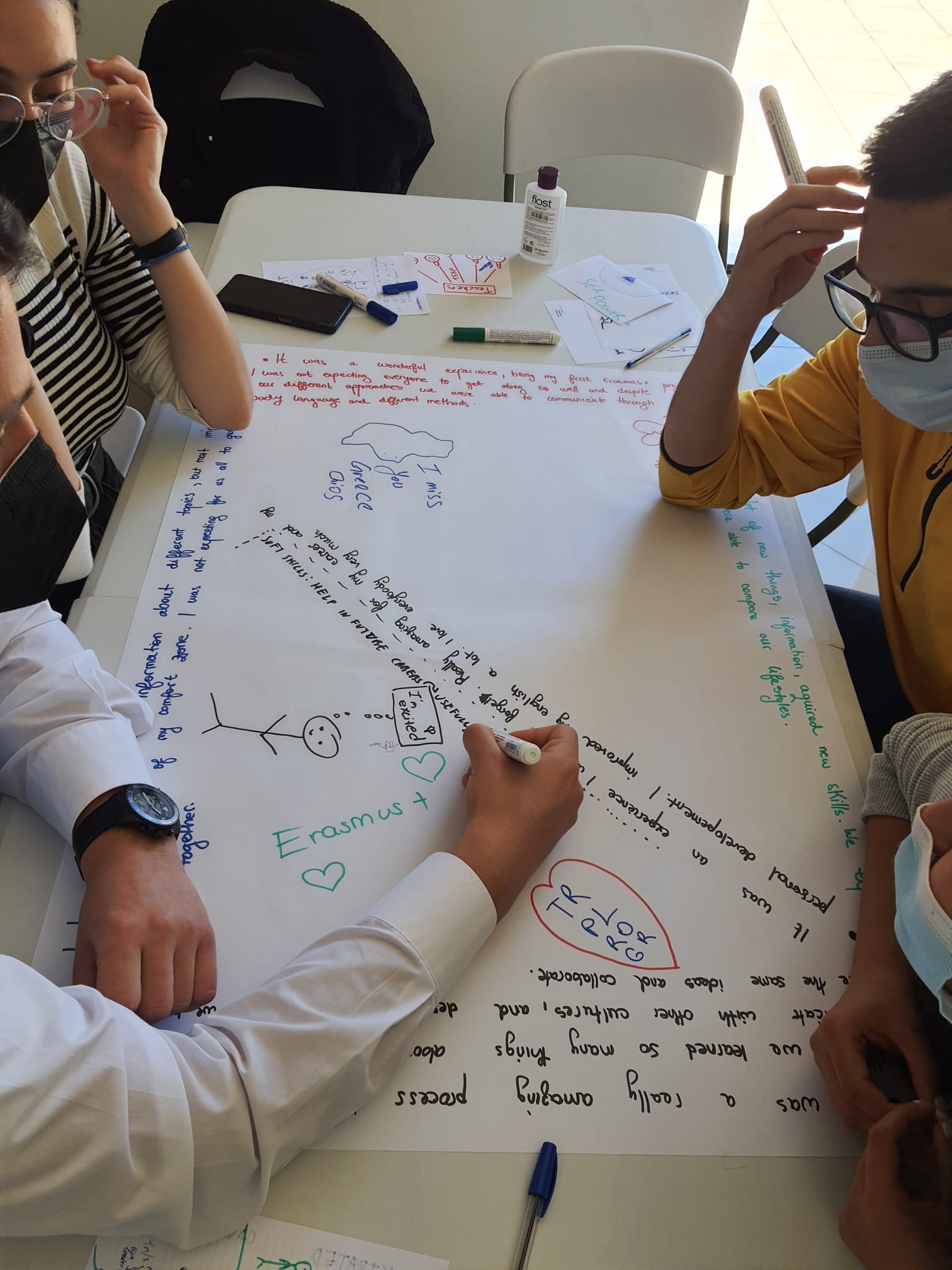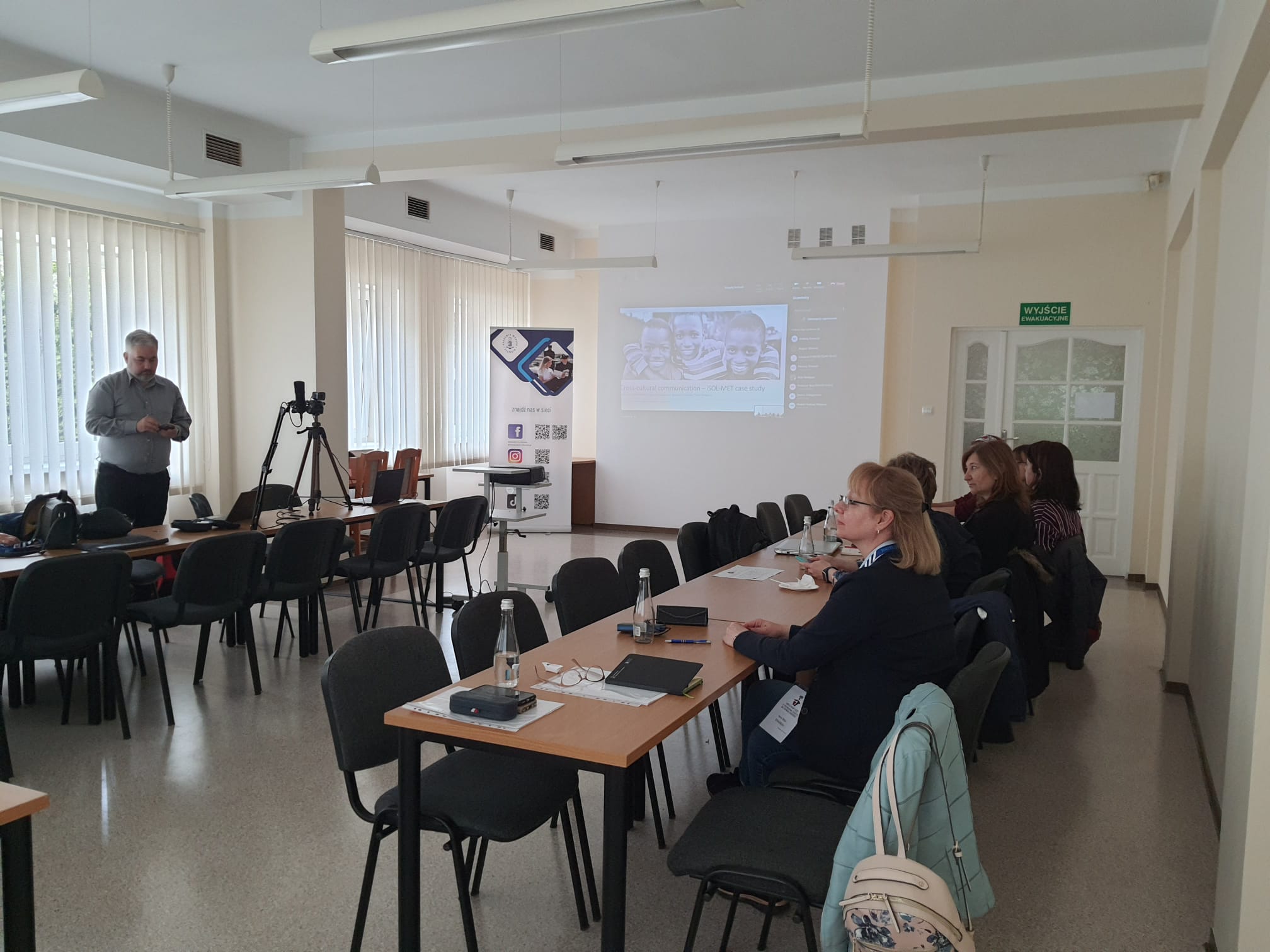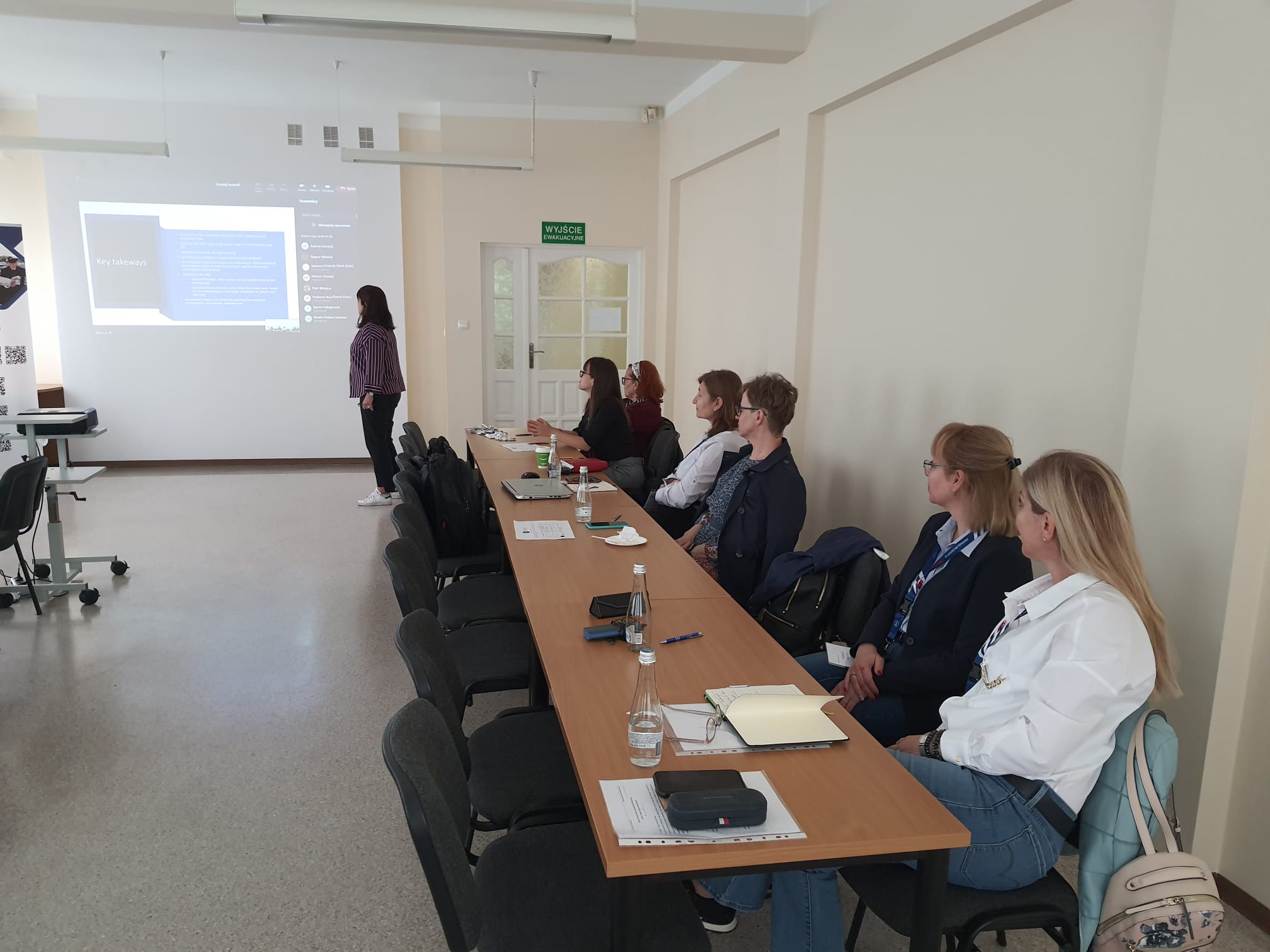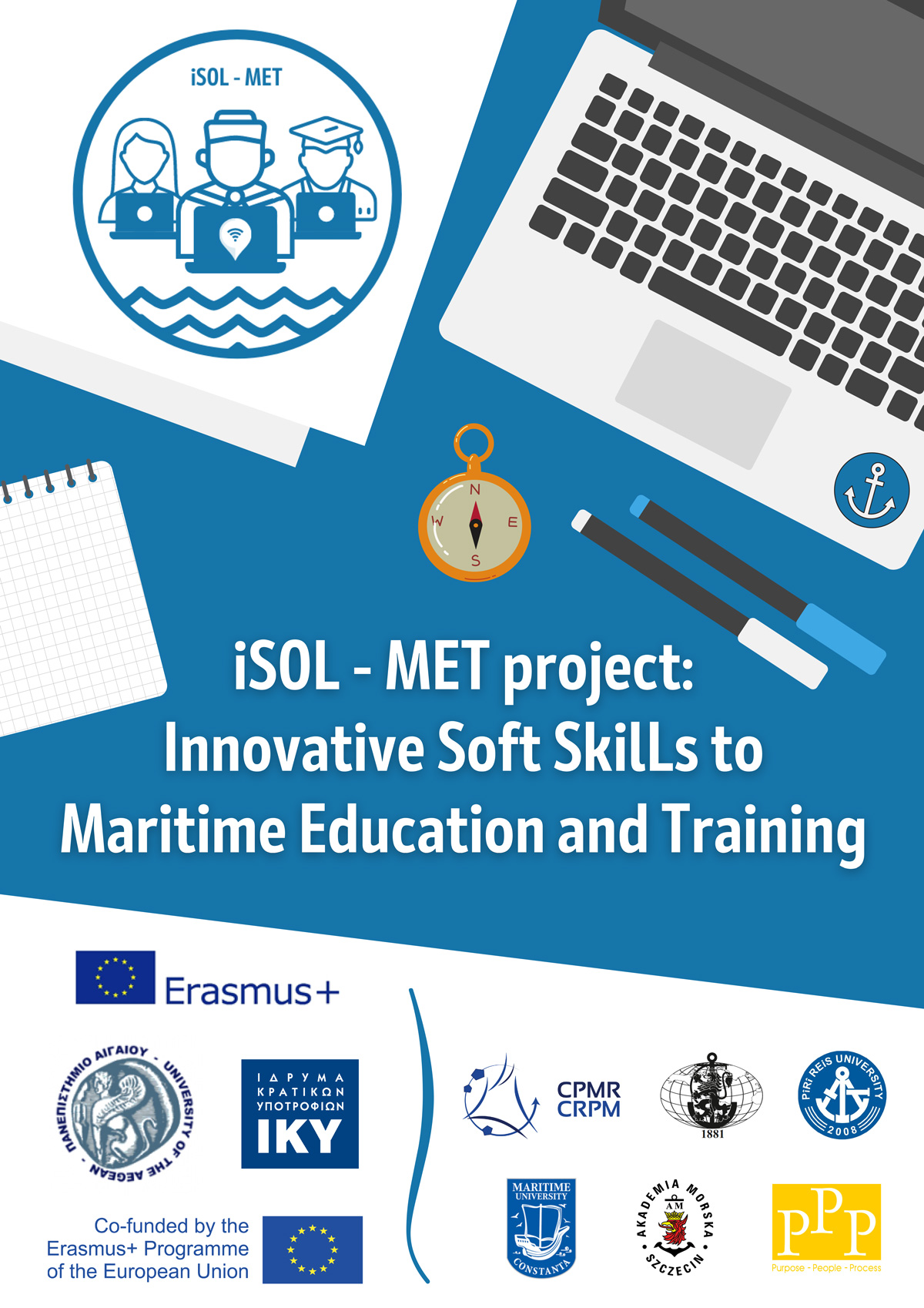November 2022 – Dissemination of iSOl-MET Project in local newspaper
April 2022 C2 – iSOL-MET Intensive program – Intensive programmes for higher education learners
The main goal of the Intensive program was to implement the developed Maritime courses for soft skills, to a specific number of students coming from the institutions of the partners.
More specifically, five students from each University and Marine Academy participated at the Intensive program, which was organized at UAegean, in Chios in April 2022.
During the ISP the courses designed were tested as well alternative teaching methods and styles in order to conclude to the most efficient ones per case.
Participating students assessed through pre-defined questionnaires the quality and effectiveness of the courses thus havong a first evaluation of the material from the actual users. At the same time each student performed a pre and post evaluation of their personal skills and competences, in odrer to “measure” how specific courses have helped students to better perceive the nature of their future occupation and further if they feel to have improve some of their skills (which and in what degree).
Testimonials
In my opinion, using case studies when teaching or learning is very useful and beneficial for the students. It makes the learning process way easier, and it facilitates a better understanding of the topic. The experience we had in Chios is a great example of how great but also how interactive case studies can be. We learned a lot, we discussed many topics, but we also made many memories and friends during the activities as a team. We managed to use everything we learned to practice our soft skills by listening to each other, being empathic, reading body language and most importantly being good communicators.
One of the best ERASMUS projects I have ever seen! The location of the Spring school, the organization and the people that got involved truly made this an amazing, fun and full of knowledge moment. I am looking forward to the next chance I get to participate in something like this! The amount of useful information which was gathered in that week cannot be compared to anything I have taken part in. Even today, I am still using what we’ve been so amazingly taught! I can’t wait for the next opportunity to learn something new! (Gabriel Andrei DOROFTEI – CMU)
I enjoyed taking part in the iSOL-MET Project as a student during the Spring school in Chios. I learned that soft skills such as listening, being patient, communicating with each other properly in order to solve problems while also being a critical thinker – well, all these help you get the job done. I believe that case studes are an attractive method to teach students this type of concepts.
May 2022 – TPM Meeting in Poland
Partners discussed on the final amendments of courses content and reporting style in order to prepare the final version of the courses to be implemented during the first Intensive Study Visit in Greece, and prepare a blueprint of the training program.
Innovative SOft SkilLs to Maritime Education and Training (iSOL-MET) – 3rd Transnational Meeting
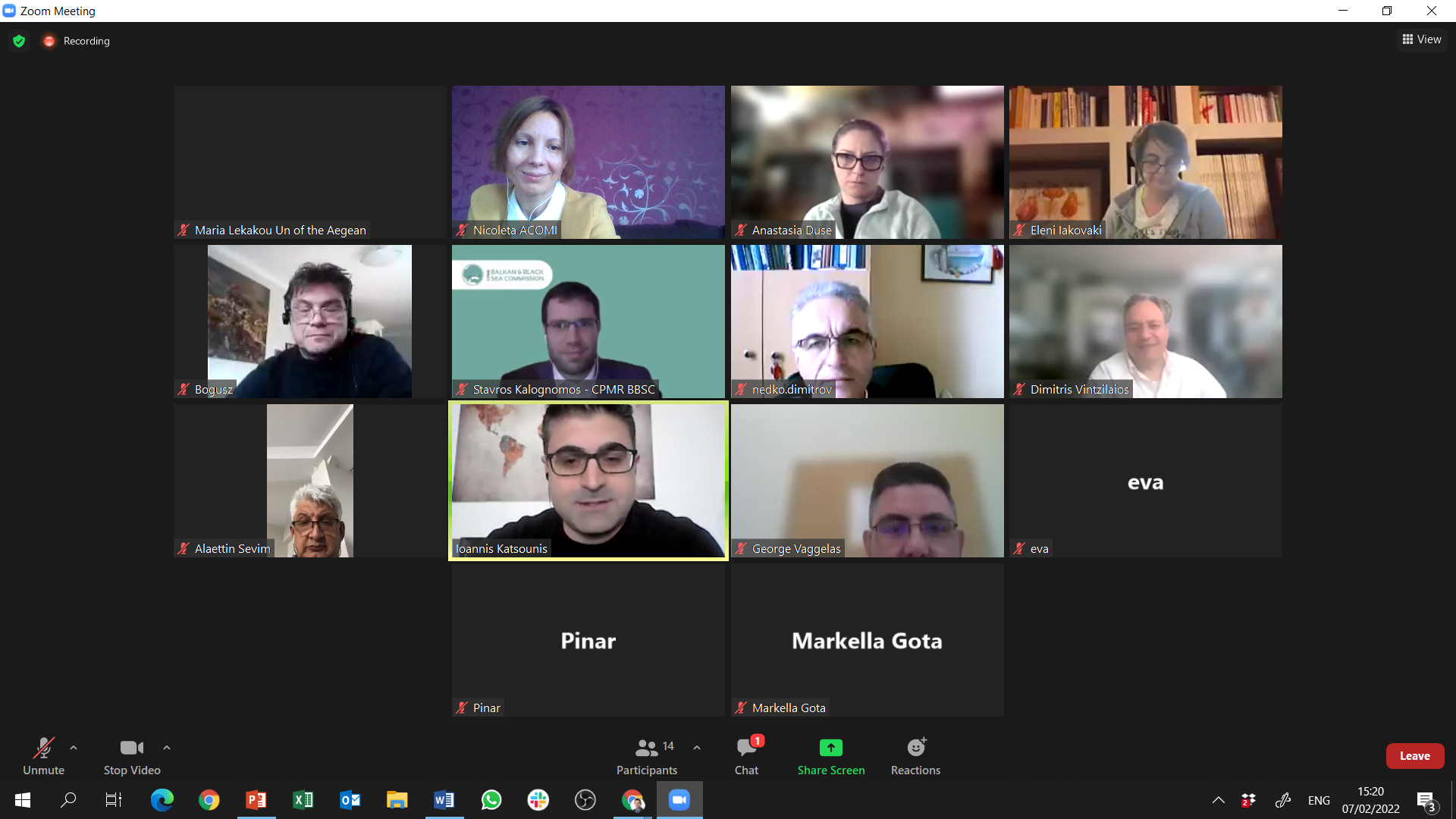
On Monday, February 7th 2022, the 3rd Transnational Project Meeting of the Erasmus + project i-SOL.MET took place, coordinated by the University of the Aegean (Greece).
The meeting focused on the coordination of the consortium for the forthcoming events and the development of a time schedule in order to organize pivotal events for the materialization of the project’s goals.
The project’s partners concluded on developing a methodological framework on how to train the trainees in view of the Spring School scheduled for April 2022.
Finally, all partners contributed their ideas for the organization of the project’s events and the meeting closed with specific time slots having been decided.
Development of the methodology for using the case studies in teaching
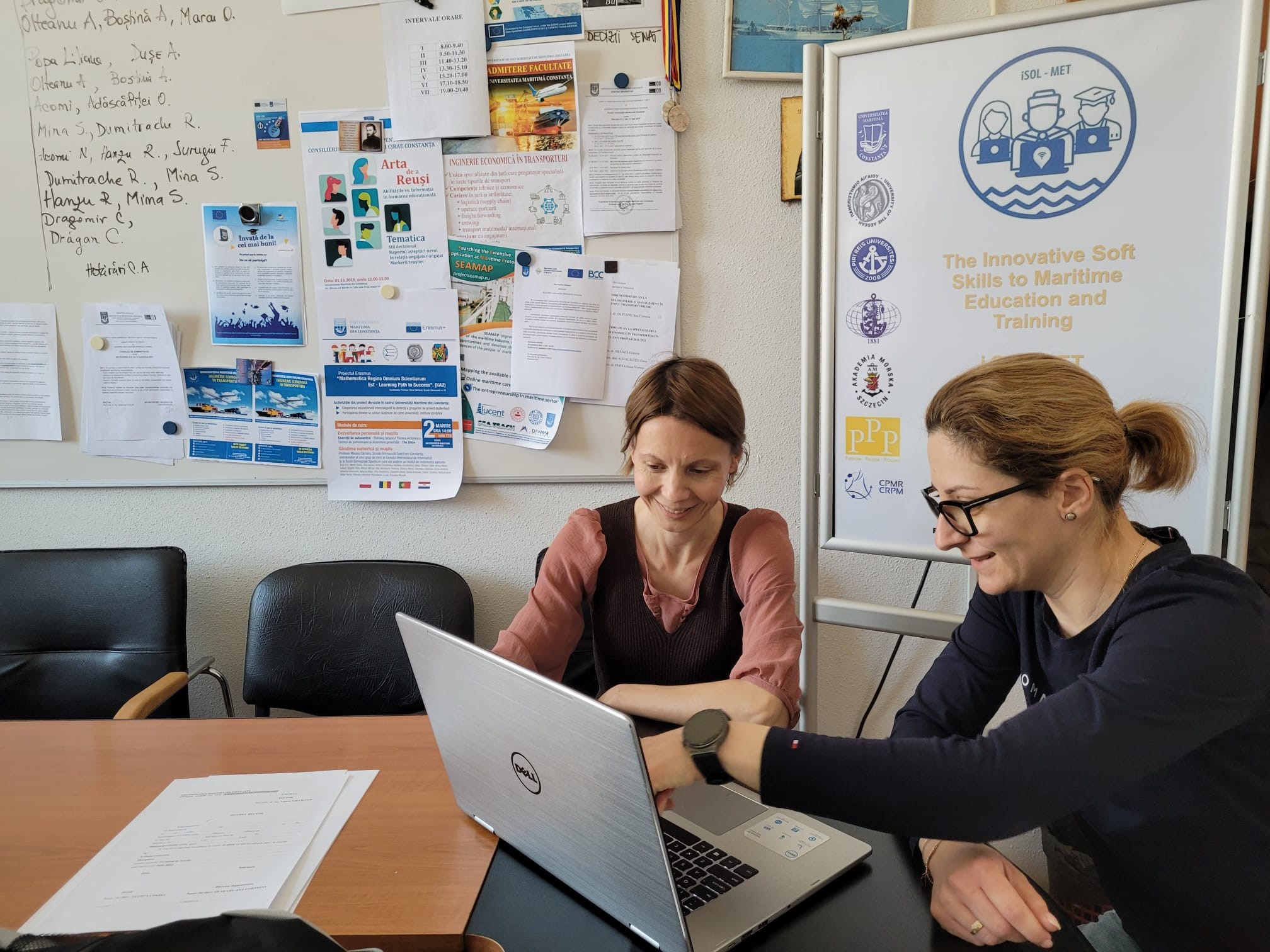
On Wednesday, February 16th 2022, the meeting for development of the methodology for using the case studies in teaching for the Erasmus + project i-SOL.MET took place, coordinated by the CMU (Romania).
The meeting focused on the elaborating the guidelines to coordinate the consortium for the forthcoming Short-term staff training event. These Guidelines for using case studies as a training material for the development of soft skills are supposed to address the needs of those trainers who are engaged in the maritime sector. The Guidelines are designed to:
- Build an understanding on the concepts of soft skills in maritime education
- Offer a methodology for the trainer for using case studies for developing soft skills in maritime education
- A handbook for sample training sessions, materials, exercises and case studies to be used during such training. It comprises of steps and activities for facilitating training on soft skills.
The result of the meeting comprises a coherent agenda for the Train the trainer course, which will be organized at the end of March, 29-31, 2022, at Varna.
Innovative SOft SkilLs to Maritime Education and Training – i-SOL.MET
Recent developments in technology have led the maritime industry towards automating a variety of onboard and ashore processes. As technology leads the path towards development, the gap in skills is widening. Personnel’s technical skills have been pushed aside by the need for soft skills, such as leadership, resilience and communication. The iSOL-MET project, co-funded by the Erasmus+ program, aims at bridging this gap between shipping world requirements, in respect to human resources soft skills and competences, through developing innovative educational material on the case study methodology. Led by the University of the Aegean (Greece), it promotes cooperation between six countries: Bulgaria, France, Greece, Poland, Romania and Turkey.
Kick-Off meeting, 21 October 2020
The iSOL-MED project was launched last year in a Kick-Off meeting held on the 21st of October 2020 in Piraeus, Greece. The project partners analyzed the steps to be taken for the successful implementation of the project and discussed the methodology that will be implemented to pursue the project’s physical objectives. Partners gave particular emphasis on the technical and quality monitoring of the project and its outputs. The meeting was hosted by Professor Maria Lekakou, representative of the Lead partner of iSOL-MET, the University of the Aegean (Greece).
On Wednesday, March 31, 2021, the second transnational meeting of the Erasmus + project Innovative SOft SkilLs to Maritime Education and Training – i-SOL.MET, took place. The meeting was hosted online by Constanta Maritime University.
The i-SOL.MET project aims to:
- Bridge the gap between shipping world requirements in respect to human resources soft skills and competences, through developing innovative educational material
- Bridge the needs of maritime professionals for ongoing career opportunities even after completing their sea service on board
- Bridge the experience gap of maritime universities’ students in respect to the on-board operations and the shipping practices.
- Exchange best practices and cultural awareness on maritime education and shipping issues.
The project focuses on the creation of a comprehensive Maritime skills course program for multidisciplinary and multicultural groups of students, using the case study methodology for cultivating the needed soft skills.
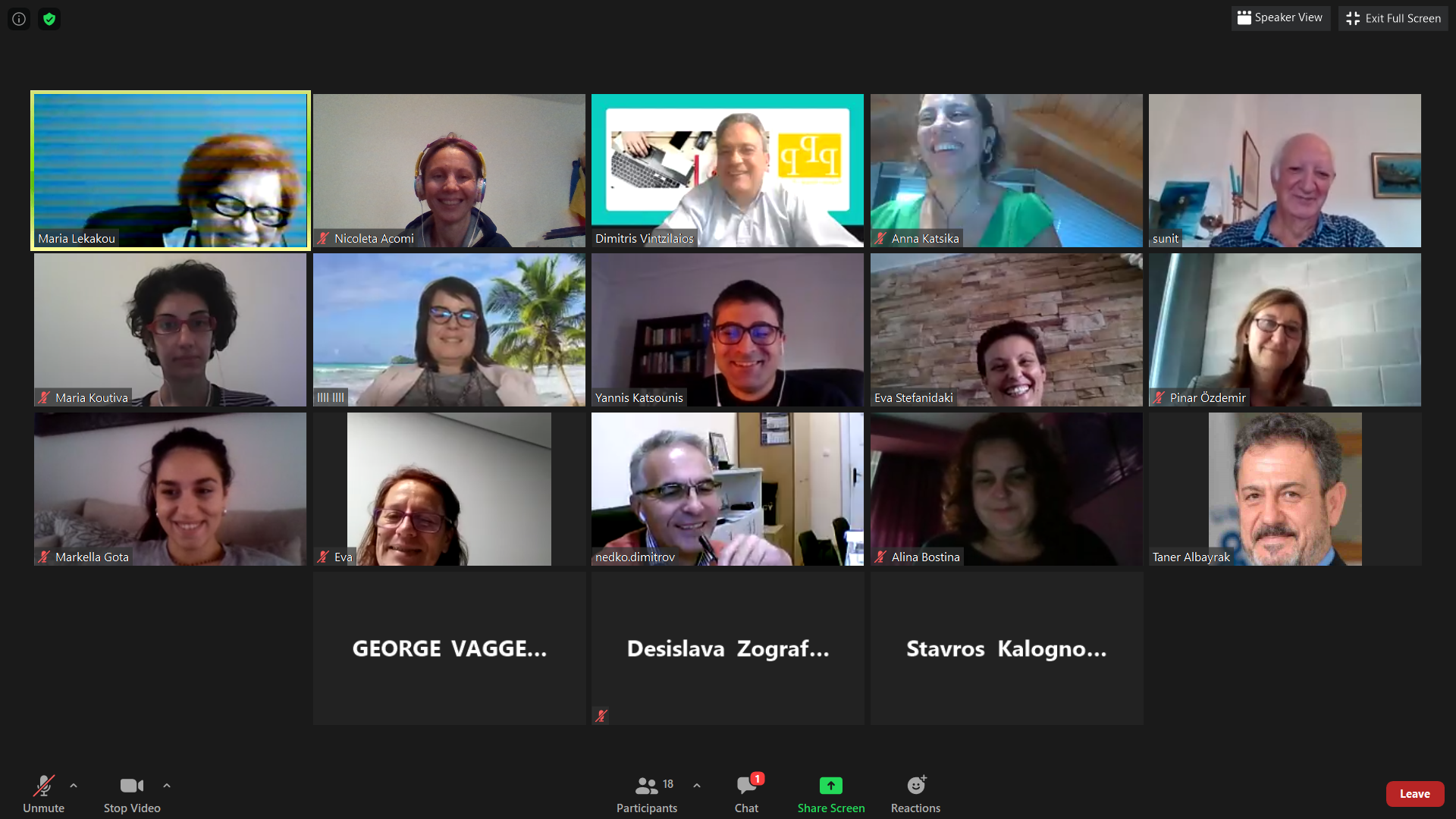
In parallel, consortium will produce in the form of a Handbook the collection of all case studies identified and analyzed during project” life time, as well as Guidelines as a practical set of recommendations to course designers for developing, conducting and evaluating a course focusing on soft skills.
Finally, consortium will design dedicated evaluation tools for soft skills based on the Assessment Center concept, as the link between the academia and industry.
Consortium consists of the:
- University of the Aegean (leader),
- Nikola Yonkov Vaptsarov Naval Academy (Bulgaria),
- TC Pin Reis University (Turkey),
- Constanta Maritime University (Romania),
- Akademia Morska Szczecinie (Poland),
- PPP Learn (Greece). And CPMR (Brussels).
i-SOL.MET has 36 months duration and received funding under the European program Erasmus + KA2 / Key Action 2: Strategic Partnerships.
Case Study Seminar – The third project meeting, 11 March 2021
During the third meeting of the iSOL-MET project, on the 11th of May 2021, partner members participated in a real-time interview in order to familiarize themselves with the process of gathering data for the case study Handbook. Participants took part in the interview by asking close-ended and open-ended questions, in an effort to obtain as much information as possible to understand the situation presented by the interviewee. The seminar, aimed at presenting the project’s methodology to the partners, was coordinated by the University of the Aegean (Greece) and took place online.
Concluding on the seminar, below are the final thoughts on creating maritime case studies:
- A case study focuses on a specific aspect, event, or time horizon in the life of a project. Cases do not cover the whole mission, but only tell a certain story.
- Each story has one or more learning objectives that can be used in a discussion, presentation, or self-reflection.
- We write cases, but the story is not ours. It is someone else’s story we are borrowing.
- Case writers build cases on respect and trust, not authority.
- Cases are living documents intended for interaction. They are not dead, cold reports of facts with which no one can argue.
“Developing a maritime case study is a unique endeavor, given the nature of shipping business. The principles of the case method of teaching, however, are universal. Told the right way—accurately, vividly, and with clearly defined learning objectives—a maritime case study has the potential to educate effectively.” By Dimitris Vintzilaios, i-SOL MET team member





